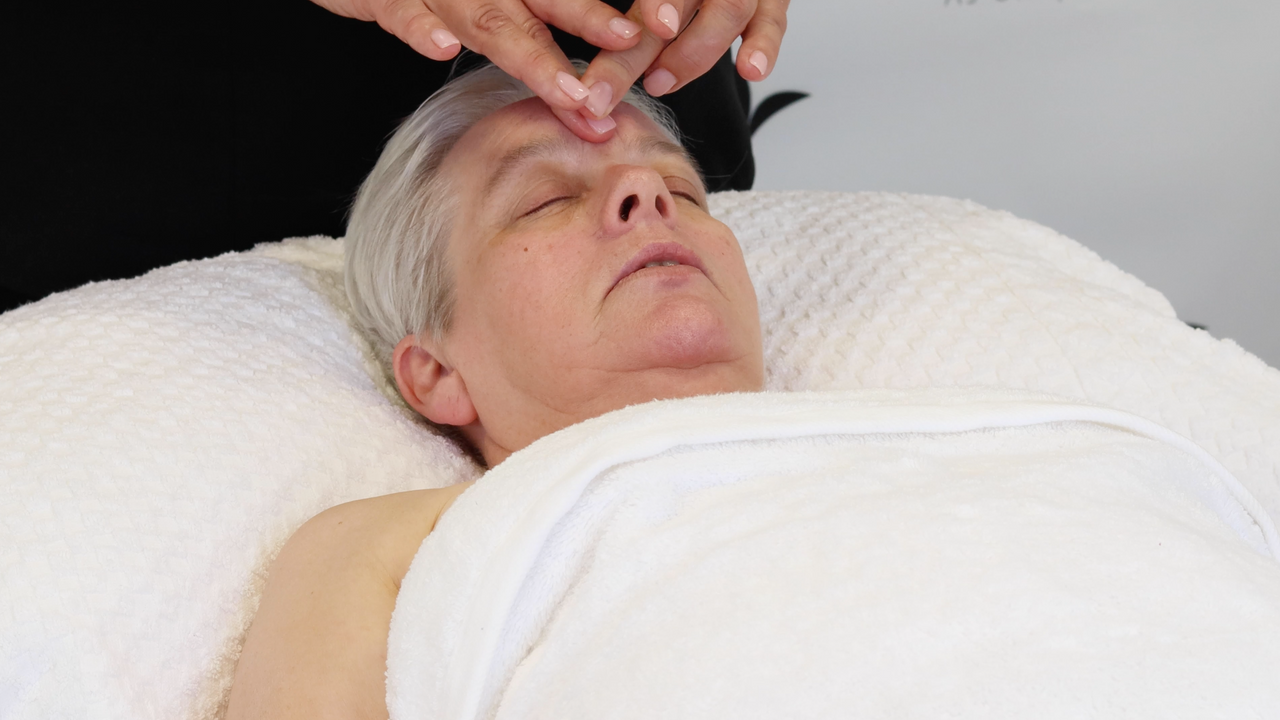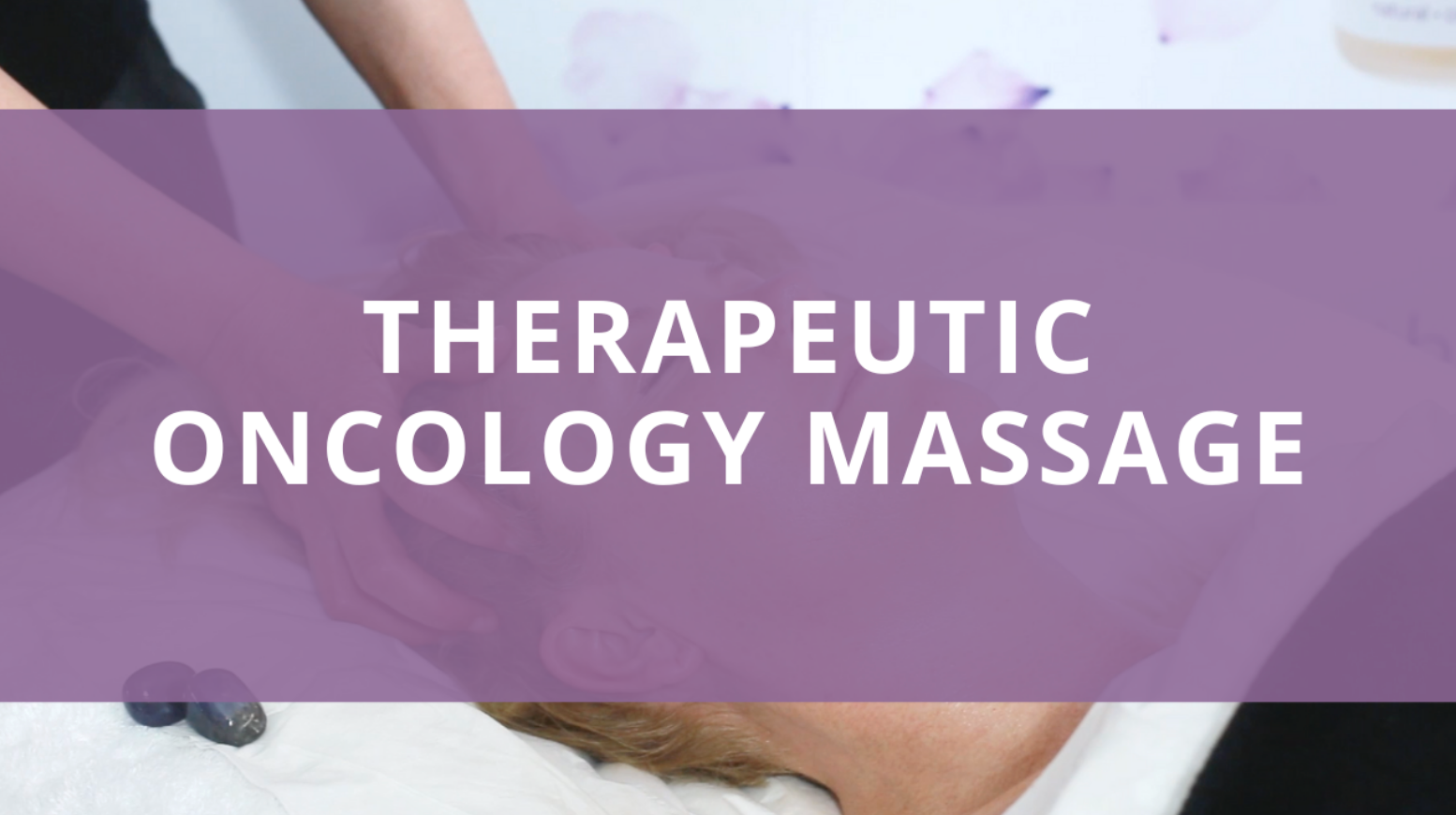
The benefits of acupressure for cancer patients
Nov 01, 2022When we set out to create touch treatments for cancer patients we have two initial objectives - first do no harm and second to do proactive good. These are the two directives that have informed our work since Jennifer Young’s local NHS hospital first asked her to work with them and create specialist skincare and cosmetics for cancer patients. It has since been extended to the development of the touch therapy qualifications that we develop as well.
Acupressure has long been a part of the work that we do at Jennifer Young Training, incorporated into movements to gently soothe and relax. On a personal note, Jennifer has always been a fan of acupuncture, and she has often seen the benefits that acupressure - derived from the same principles, brings to all individuals but particularly those going through cancer treatment. As a result, she wanted to incorporate acupressure more proactively into our treatment offering to really target the side effects of cancer treatments.
Scientific research into acupressure for cancer patients
Jennifer’s motivation was further boosted by conversations that she has had with cancer patients over the years, which formed the basis of a presentation she gave this year to Oncology Professional Care at ExCel in London. At the event, Jennifer spoke to doctors about the secret concerns of cancer patients, reluctantly whispered to her because they felt they had no right to expect anything beyond medical treatment when it comes to cancer care. The side effects of treatment, particularly chemotherapy, can be extremely unpleasant - ranging from anxiety to nausea and painfully dry or itchy skin. Our products have always been created to address the dry and itchy skin, however, Jennifer felt there was more we could do to address some of the other concerns of cancer patients.
As with everything we do, in-depth research was our starting point. Jennifer already has knowledge of acupressure from her professional training, but when it comes to developing products and treatments she always wants evidence.
Our research began with Jennifer’s State of the Art Scoping Review, commissioned from the UK’s Keele University. It provides academic validation and statistical scrutiny of holistic therapies on specific symptoms. The research validated the use of acupuncture to ameliorate the unwanted physical and emotional consequences of menopause. We then translated this knowledge into the less invasive acupressure approach.
Enhance oncology massage with these body oils
READ MORE
Why use acupressure for cancer patients?
The reason we wanted to use acupressure to address these particular symptoms is because acupuncture (and as a result, acupressure), has broad spectrum efficacy - it's a bit like being given a broad spectrum antibiotic - it has widely applicable uses. This makes it a really effective and useful in therapist training because it's adaptable.
Acupressure is also less invasive and has a different level of training to acupuncture, so its use makes the treatment more accessible. Furthermore, it's better for people who are already experiencing a lot of use of needles or are needle phobic, and it's better suited to the amount of time individuals prefer to spend in a spa environment as acupuncture needles are usually applied for an extended period.
The research ran in parallel with Jennifer’s work with menopause, looking at how acupressure along with other holistic therapies can be used to ease the unwanted consequences of hormonal imbalance. The key element is that we were looking at treating causes instead of symptoms through acupressure points and that has similar acupressure points.
Turning acupressure knowledge into therapist training
What makes our approach unique is that the acupressure points we use address the cause rather than the symptom in order to help provide relief.
There are a lot of acupressure points (there are 35 in our hormonal wellness body treatment). So, the way we decided on the points we were going to use for both menopause and cancer patients, was to work with our acupuncturist to match acupuncture points with specific symptoms. That's quite an unusual approach because of the broad spectrum nature of acupuncture. For example, you might go to an acupuncturist with a sore knee and it may be treated with the same points that would treat PMS as there is a similar underlying cause.
We looked at symptom groups and matched the points that would be useful for those symptoms. For example, if you're struggling with sleep there's a kidney point on the ankle that we will work on. The ultimate focus is on how you feel at the end of the treatment.
Where there is a departure from acupuncture and acupressure treatments is in the length of stimulation - acupuncture needles are often left in for quite a long time to stimulate energy - at least five minutes. It's not feasible in a spa treatment to stimulate a point for that long with acupressure, so we apply acupressure plasters. These contain a small seed, which continue to apply pressure and continue the wellbeing at home, but also teach people to stimulate those points themselves, which is quite empowering. People who are having cancer treatment are not often empowered as part of their treatment process, they're just told what to do and have very few decisions within their control. To be given the tools for self-help is important and powerful in itself.
Essential oils for those affected by cancer
READ MORE
Creating touch therapies to address the side effects of cancer treatment
The key side effects we wanted to target are a combination of those experienced from cancer treatment but also those that often follow a cancer diagnosis in general - particularly when it comes to mental health challenges like stress, anxiety and sleeplessness. Some of these can also be symptoms of cancer itself - for example, nausea. The areas we focused on with our acupressure points are as follows:
- Sleeplessness
- Stress and anxiety
- An inability to focus (also referred to as 'chemo brain')
- Low energy levels
- Low confidence levels
- Headaches
- Nausea
- Dry and itchy skin
We then incorporated these into dedicated oncology touch therapy training, our Therapeutic Oncology Massage, which further matches symptoms with skincare ingredients and aromatherapy to enhance the therapeutic benefits of the touch treatment. As a result, therapists can now gain accredited training to help ease the side effects of cancer treatment. While doctors focus on treating the disease, we focus on supporting the individual and acupressure is a powerful way to do that.
Find out more about our Therapeutic Oncology Massage qualification
FIND OUT MORE


